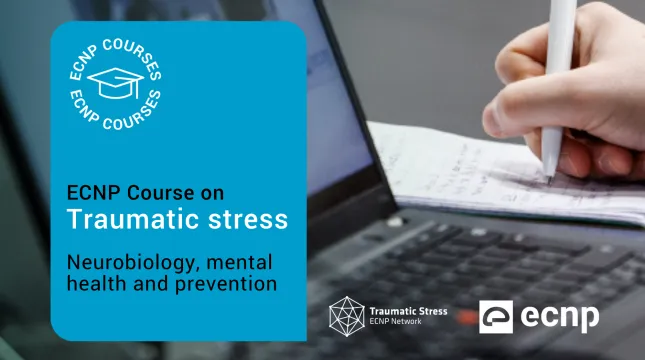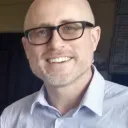Description
This course provides a comprehensive overview of contemporary approaches and research aimed at improving mental health outcomes for people in adversity.
Through eight lectures, the course covers early Post Traumatic Stress Disorder (PTSD) secondary prevention and the brain's role in trauma, resilience strategies during global crises such as COVID-19, and community-based interventions for large-scale traumatic events. It also explores the transdiagnostic Self-Help Plus program, designed for low-resource settings, the impact of stress on sleep and its relation to PTSD, neuroscience-based approaches to address traumatic intrusions, cognitive-behavioural approaches to grief therapy, and innovative technologies in suicide prevention. The course integrates current research with practical strategies to address and mitigate psychological distress following complex emergencies effectively.
This course is based on the Hot Topics webinar series developed by the ECNP Traumatic Stress Network core members Dr. Iryna Frankova (Ukraine), Prof. Eric Vermetten (the Netherlands) and Prof. Joseph Zohar (Israel).
Learning objectives
- Identify key strategies for early intervention following traumatic experiences
- Understand and apply early and secondary prevention of PTSD techniques
- Implement scalable community-based mental health interventions
- Explore innovations in mental health technologies
Audience
This course is ideal for mental health professionals and researchers engaged in or interested in trauma and stress-related fields. It is also suitable for those working in emergency response, prevention, community health, and humanitarian contexts, as well as individuals seeking to deepen their understanding of mental health interventions and strategies.
Course format
At the start of the course, your existing knowledge on the subject will be assessed through a pre-course test. The course comprises eight 30-min lectures, which can be viewed at your convenience. Each lecture concludes with three multiple-choice questions.
The course is completed upon the successful completion of the post-course test.
Course schedule
Module 1: Precision Psychiatry during the aftermath of trauma
Lecture 1 — Precision Psychiatry during the aftermath of trauma (Kerry J. Ressler)
Module 2: Changing perspective on post trauma from classic to mass casualty trauma, and ways to address mental health
Lecture 2.1 — Mass casualty trauma - changing perspective on post trauma from classic to pandemic (Arieh Y Shalev)
Lecture 2.2 — Five principles of mass casualty intervention amidst the reality of war's onslaught (Stevan Hobfoll)
Lecture 2.3 — Scalable interventions to address mental health (SH+ and DWM) (Ken Carswell)
Module 3: Addressing trauma-related sleep disturbances, grief, and suicidal behaviour
Lecture 3.1 — Understanding and working with intrusive memories after trauma (Emily Holmes)
Lecture 3.2 — Treatment of sleep disturbances following trauma (Katherine Miller)
Lecture 3.3 — Traumatic grief and grieving (Paul Boelen)
Lecture 3.4 — Recent advances in the prediction and prevention of suicidal behaviour (Matthew K. Nock)
How to enrol
This course is freely accessible to all individuals with a myECNP account. If you do not yet have a myECNP account, please visit the ECNP website at ecnp.eu and navigate to the ‘myECNP’ tab.
Registration is open now.
Should you have any questions, please feel free to contact us at knowledge-hub@ecnp.eu.










